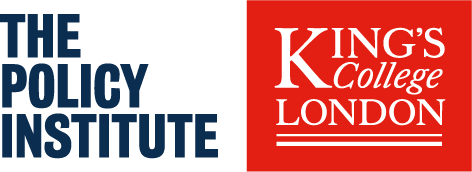Research Fellow - Data and Analysis
King's College London
The Policy Institute
London, United Kingdom
Deadline: Sun, 29 Oct 2023
Contact: suzanne.hall@kcl.ac.uk


The Policy Institute at King’s College London works to solve society’s challenges with evidence and expertise. We combine the rigour of academia with the agility of a consultancy and the connectedness of a think tank.
In this role, you will be expected to work in a fast-paced and dynamic research environment on high-profile and influential policy research and analysis projects. This includes both academic, consultancy and exploratory projects as well as more media-focused polling.
The successful applicant will help to oversee the Policy Institute’s quantitative research capacity, including leading projects or workstreams with analytical components, ensuring methodological rigor in the analytical approaches we use, and actively looking for opportunities to innovate in the methods we employ. The successful applicant will have significant experience of analysing survey data, though experience of working with other data types would be advantageous.
You will support existing projects, with a particular focus on a major study we are leading – the World Values Survey in the UK (WVS), funded by the ESRC, Cabinet Office, Barrow Cadbury Trust, the British Academy and others. The successful applicant would also be expected to support our ongoing work on topics such as polarisation, culture wars, freedom of expression, trust, democratic innovations, generational change and changing values/attitudes. Knowledge and understanding of theoretical frameworks and research trends in these areas, as well as the broader challenges of working with values and public attitudes data, would therefore be a helpful foundation for this role.
The Research Fellow would be expected to work effectively on mixed methods studies and to be able to work independently with comparative and longitudinal survey data to produce the following types of outputs:
- descriptive analyses using time series data, combining several modes;
- regression and other multivariate techniques;
- synthetic cohort analysis and APC modelling;
- segmentations using latent class analysis;
- dimension reduction and scaling methods;
- random effects models (e.g. multi-level modelling);
- structural equation modelling.
A high level of theoretical and applied understanding of statistical techniques is essential for this role, as you will be running analyses independently and advising a quantitative Research Assistant. The successful candidate will also be expected to show a commitment to continued professional development, in learning new skills and methodologies.
In addition to working on our existing projects, you will also have time to develop your own research in your area of expertise – though ideally related to our research theme Trust, Facts, Democracy. The post holder is expected to develop their own strands of externally funded work, supported by the Policy Institute and wider College, and to build their external profile by publishing and attending conferences.
The Policy Institute also offers unique opportunities for applied and impact-led research, with deep connections into policy communities. Our diverse portfolio of research projects that use quantitative approaches are often high-profile, time-critical studies that feed directly into key policy and political debates and receive considerable media coverage and policymaker attention. In this role, you will have opportunities for making connections with influential stakeholders via our networks (e.g. our Visiting Faculty) and ad hoc opportunities to work directly with high-profile policy stakeholders.
The successful applicant would also have opportunities to take on mentoring roles for junior quantitative researchers in the Policy Institute team as well as via internships (e.g. KCL Parliamentary Research Internships, MA in Public Policy, and others).
This grade of this role is one stage beyond a post-doctoral post. This means we expect applicants coming through an academic route to have an established research profile in a relevant field and to be at least two years post-PhD, and/or those coming from a commercial or public sector research role to have at least six years of experience with clear evidence of specialisation and publication track record. In your application, please demonstrate how your experience meets these expectations.
Please visit the website for full details.











